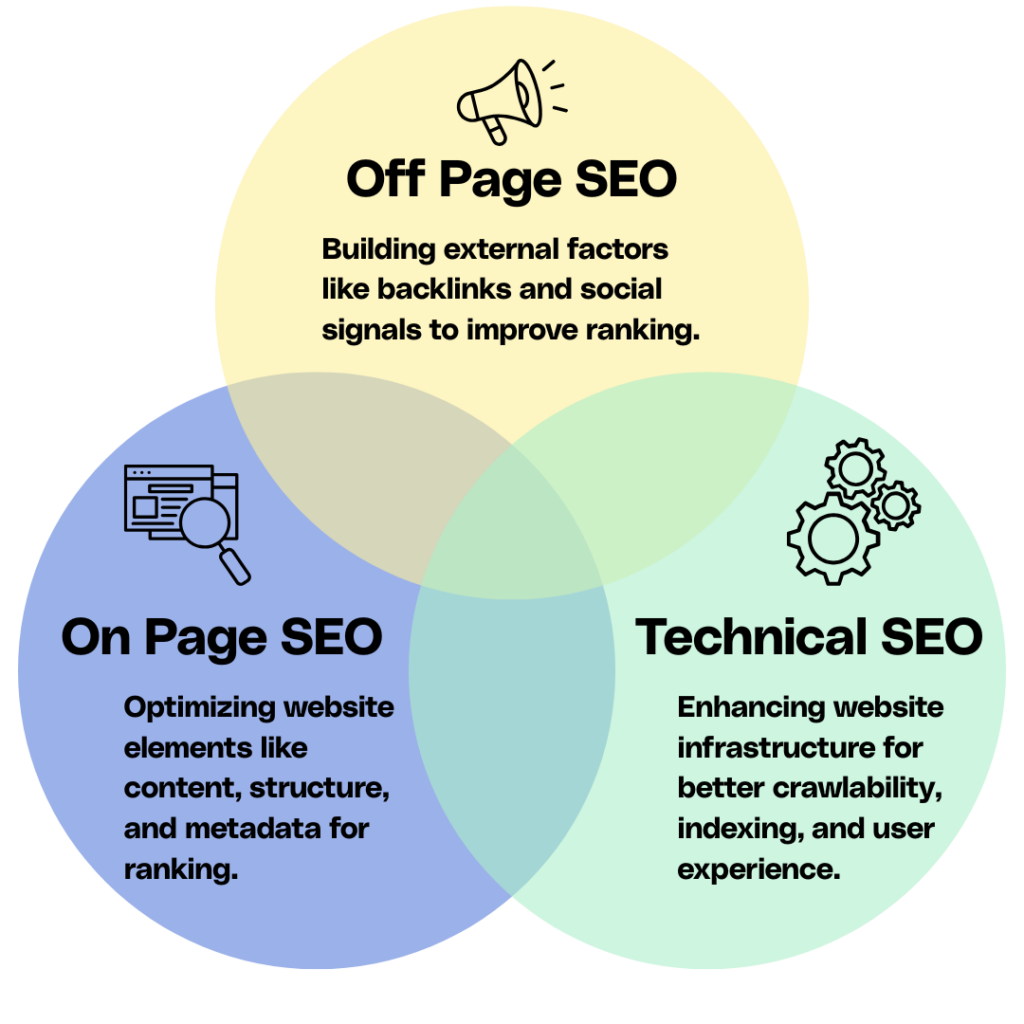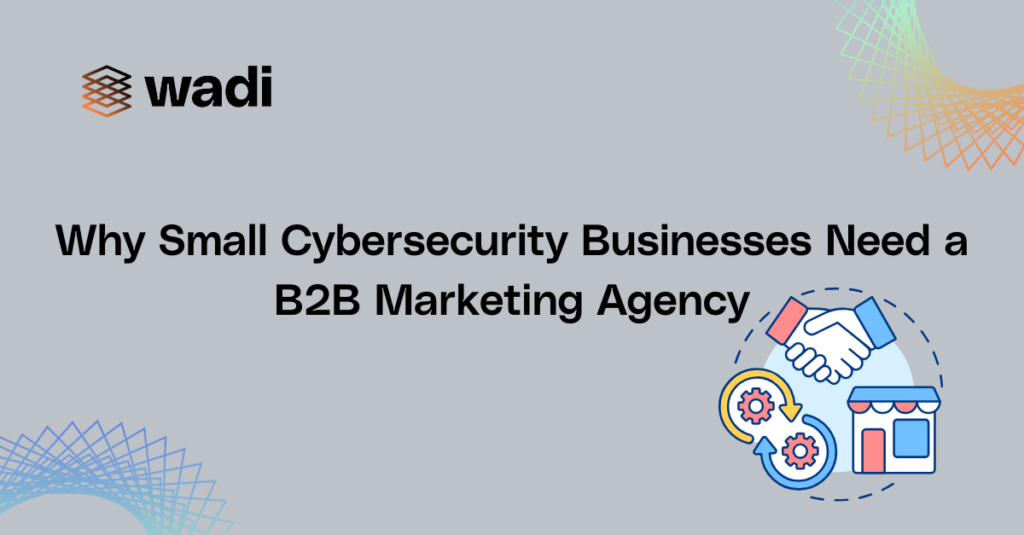Table of Contents
ToggleWhat You Will Learn:
- How SEO can help cybersecurity businesses stand out in a competitive market by improving search visibility.
- How to identify your audience, conduct keyword research, optimize content, and build backlinks.
- Learn the difference between on-page, off-page, and technical SEO and how they apply to a cybersecurity marketing strategy.
In today’s digital world, cybersecurity is more important than ever. With cyberattacks on the rise, businesses are investing heavily in online security to protect their data and customers. This increased demand for cybersecurity services has led to a crowded and competitive market. To stand out and attract clients, it is crucial to have a robust cybersecurity marketing strategy. One of the essential components of this strategy is Search Engine Optimization (SEO).
SEO is a set of techniques used to improve a website’s visibility in search engine results. By optimizing your website for relevant keywords, you can increase its chances of being found by businesses looking for cybersecurity services. This, in turn, can lead to more traffic, leads, and ultimately, more clients.
Key SEO Strategies for Cybersecurity Marketing
Identifying Your Target Audience
Before you can start optimizing your website, you need to understand your target audience. Who are the businesses or individuals most likely to need your services? What are their pain points and concerns regarding cybersecurity? Answering these questions will help you create content that addresses their needs and interests.
Conducting Keyword Research for Cybersecurity
Keyword research is the foundation of any successful SEO strategy. Identify the keywords and phrases that your target audience is using to search for cybersecurity services. Tools like Google’s Keyword Planner or SEMrush can help you find relevant keywords with high search volume and low competition. Remember to include variations of your main keywords, such as “cybersecurity marketing strategies” or “effective cybersecurity marketing”.
Optimizing Your Website for SEO
Once you have identified your target audience and conducted keyword research, it’s time to optimize your website. Start by optimizing your site’s meta tags, headings, and content for your chosen keywords. Additionally, make sure your website is mobile-friendly, loads quickly, and has a clear and easy-to-navigate design.
Pro Tip: Ensure your website is mobile-friendly, fast-loading, and secure (use HTTPS) to improve both user experience and SEO rankings.
Creating Quality Content
Content is king when it comes to SEO. Create informative and engaging content that addresses the needs and concerns of your target audience. This could include blog posts, whitepapers, case studies, or even video tutorials. Remember to include your chosen keywords naturally within the content, but avoid keyword stuffing.
Building Backlinks
Backlinks, or links from other websites to your site, are a crucial ranking factor for search engines. Reach out to industry blogs, news sites, or even other cybersecurity companies to get links back to your site. Remember to focus on quality over quantity, as not all backlinks are created equal.
Implementing SEO Best Practices in Cybersecurity Marketing

On-Page SEO Tactics for Cybersecurity Businesses
On-page SEO refers to the optimization of individual pages on your website. This includes optimizing the title tags, meta descriptions, headings, and content for your chosen keywords. Additionally, make sure to include internal links to other relevant pages on your site.
Off-Page SEO Strategies to Boost Your Online Presence
Off-page SEO refers to the activities you can do outside of your website to improve its visibility in search engine results. This includes building backlinks, as mentioned above, but also engaging in social media marketing, online PR, and influencer marketing.
Technical SEO Considerations for Cybersecurity Websites
Technical SEO refers to the optimization of your website’s technical aspects, such as its site speed, mobile-friendliness, and URL structure. Make sure your website is secure (using HTTPS), has a clear and logical URL structure, and has an XML sitemap that can be submitted to search engines.

Measuring the Effectiveness of Your SEO Strategies
Setting up KPIs for Your Cybersecurity Marketing Campaign
Key Performance Indicators (KPIs) are metrics that help you measure the success of your marketing campaign. Common KPIs for cybersecurity marketing include website traffic, leads generated, conversion rate, and ranking in search engine results.
Using Analytics to Track Your SEO Performance
Use tools like Google Analytics to track your website’s performance and see how well your SEO efforts are paying off. Pay attention to metrics like organic traffic, bounce rate, and the average time spent on your site.
Continuously Improving Your SEO Strategy
SEO is not a one-time effort but an ongoing process. Regularly analyze your website’s performance and make necessary adjustments to your SEO strategy. This could include updating your content, building more backlinks, or even optimizing your website’s technical aspects.
Conclusion
SEO is a crucial component of any cybersecurity marketing strategy. By optimizing your website for relevant keywords, creating quality content, and building backlinks, you can improve your website’s visibility in search engine results and attract more clients. Remember to continuously monitor and adjust your SEO strategy to ensure its ongoing success.
FAQs:
Why is SEO important for cybersecurity marketing?
SEO is crucial for cybersecurity marketing as it helps improve your website’s visibility in search engine results, leading to more traffic, leads, and ultimately, more clients.
What are the key components of an SEO strategy for cybersecurity marketing?
The key components of an SEO strategy for cybersecurity marketing include identifying your target audience, conducting keyword research, optimizing your website, creating quality content, building backlinks, and continuously monitoring and adjusting your strategy.
How can I measure the success of my SEO efforts?
You can measure the success of your SEO efforts by setting up Key Performance Indicators (KPIs) such as website traffic, leads generated, conversion rate, and ranking in search engine results. Additionally, you can use tools like Google Analytics to track your website’s performance.
What are some common SEO mistakes to avoid in cybersecurity marketing?
Common SEO mistakes to avoid in cybersecurity marketing include neglecting mobile optimization, keyword stuffing, not creating quality content, not building backlinks, and not continuously monitoring and adjusting your SEO strategy.






